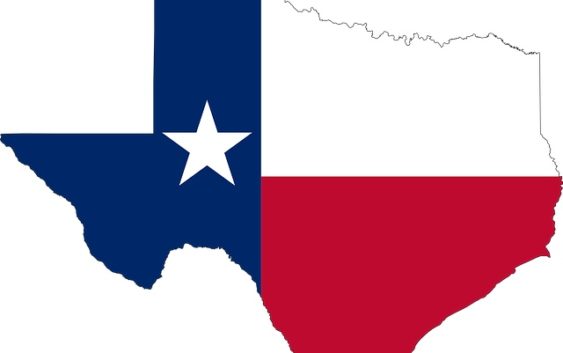- Crews battle wildfires in North and South Carolina amid dry conditions and gusty winds
- As wildfires grip South Carolina, governor warns: Burn and you’ll go to jail
- Sebastian Aho's OT goal lifts Hurricanes past Flames 2-1
- Hundreds of brush fires burn across North Carolina Saturday; several fires still burning Sunday
- Texas’ biggest wildfire started a year ago. How does the Panhandle look now?
How Three Corners Of Texas Are Faring Amid Pandemic

From Texas Standard:
As of Monday morning, there is no statewide shelter-in-place order in Texas like the ones in New York and California. Texas Gov. Greg Abbott issued an executive order last week requiring bars and gyms to close and restaurants to limit service to takeout orders. But he said expanding that to shelter in place would be up to local officials.
Abbott is also looking to grow the state’s supply of safety equipment for medical professionals, to protect them from COVID-19.
Three Texas reporters are covering the pandemic, and Abbott’s response to it, in Dallas, the southern border and out in West Texas.
Allie Morris is a political reporter for The Dallas Morning News. She says the Dallas-Fort Worth Hospital Council urged Abbott over the weekend to issue a shelter-in-place order to stem a possible surge in hospital visits related to COVID-19. The council says there’s a limited supply of protective gear, which means doctors and other medical workers are at risk when treating patients who have the disease.
While Abbott hasn’t issued an order, Morris says he is helping on other fronts. He asked the federal government to ramp up production of protective equipment, and he ordered doctors to stop performing non-essential procedures to free up time and resources for COVID-19 treatment. Beyond that, Abbott might even ask the National Guard to assist with testing.
Last week, the U.S. and Mexico agreed to temporarily close the southern border to all but essential travelers. The northern U.S. border is also closed. Julian Aguilar is an immigration and border security reporter for The Texas Tribune. He says essential travelers includes medical professionals and educators. Major trade will also continue; Mexico is Texas’ largest trading partner.
“Texas and Mexico trade billions of dollars a year,” Aguilar says.
But the closure is already having a negative effect on small businesses that rely on regular cross-border travel.
“People go back and forth several times a week sometimes to buy supplies and then take them across,” Aguilar says.
Aguilar says people in immigrant detention are also affected by the pandemic. Immigrant advocates are trying to get them released, at least temporarily, so they aren’t put at risk for contracting COVID-19.
“What immigrant rights groups and their attorneys are really afraid of is that … a few people are going to get sick inside these detention centers and it’s just going to spread like wildfire,” he says.
Out in West Texas, officials in Midland confirmed the first case of COVID-19 on Friday. Mitch Borden reports on the Permian Basin for Marfa Public Radio, and he says a man in his 60s likely contracted the disease while traveling within the United States. Hospital officials say he’s recovering. There could also be three to four more people at Midland Memorial Hospital who have COVID-19, Borden says.
Midland is also dealing with the crash of the oil market, caused in part by the pandemic, and also because of competition from Saudi Arabia. As a result, Borden says the city has been reluctant to promote social distancing by closing down restaurants and shops.
“They’re already looking down a barrel of a recession, so any limitation on the economy out here they felt like was detrimental to their residents,” Borden says.
Since Abbott’s order last week, though, the city has tried to comply without harming the local economy.
Borden says concern about COVID-19 is starting to grow in Midland, albeit later than in other parts of the state. He says hospitals are now asking oil companies to donate industrial-grade masks to protect medical workers from the virus.
“The economy has been the main focus up until late last week,” Borden says.
Written by Caroline Covington.
9(MDAwMTM1NDgzMDEyMzg2MDcwMzJjODJiYQ004))